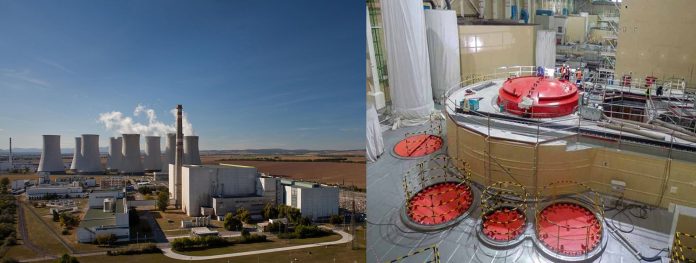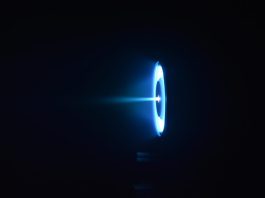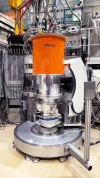With a focus on thermal ageing, the DELISA-LTO project aims to determine the most affected components of VVER reactors from the perspective of Long-Term Operation.
The DELISA-LTO project (DEscription of the extended LIfetime and its influence on SAfety operation and construction materials performance – Long Term Operation without compromising safety), funded by the Horizon Europe programme (2022-2026), unites nine institutions across five countries (Czech Republic, Slovakia, Hungary, Ukraine, and Finland) with a shared goal: increasing the safety and reliability of Water-Water Energetic Reactors (VVER) for an additional 40 years.
By safe Long-Term Operation (LTO), VVERs can contribute to reducing greenhouse gas emissions for energy production and constructing new energy sources.
The project aims to identify the most vulnerable and affected components of VVERs by assessing the impact of LTO on their material properties through a combination of experimental measurements on VVER materials exposed to real operating conditions and advanced modelling techniques. This project focuses on fundamental phenomena such as thermal ageing and swelling, which are critical to the longevity and safety of Nuclear Power Plants (NPPs).
By incorporating interdisciplinary approaches, experimental validation, and simulation tools, the project intends to deliver a comprehensive early-warning system for assessing the integrity of VVER systems over extended operational periods.
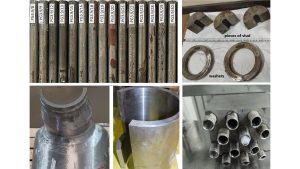
Critical components of NPPs from an LTO perspective
The DELISA-LTO survey, which gathered operational experience from all partner countries, identified vital components essential for the safe LTO of VVERs. The Reactor Pressure Vessel is the most critical component due to its thermal and irradiation embrittlement susceptibility. Since the Reactor Pressure Vessel is irreplaceable, maintaining its structural integrity over extended periods is paramount.
Similarly, Reactor Internals, such as the Core Barrel and Core Baffle, are highly vulnerable to degradation. These components are made from austenitic stainless steel and are prone to swelling, thermal ageing, and irradiation-assisted stress corrosion cracking. Although Reactor Internals are replaceable, their manufacturing becomes complex without the original general contractor.
The Heat Exchange Tubes in the Steam Generator are susceptible to thermal ageing, stress corrosion cracking, and general corrosion. Leaks in these tubes lead to preventive tube plugging during regular maintenance, which reduces the Steam Generator’s efficiency and capacity, although there is a reserve of 20% of tubes. Given the high cost and complexity of replacing Steam Generators, proper maintenance is crucial for the plant’s LTO.
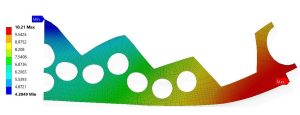
Insights from the DELISA-LTO project to irradiation swelling
Swelling behaviour varies significantly between VVER-440 and VVER-1000 reactors. In VVER-440 reactors, minimal swelling is observed in the Core Basket, where strain levels up to 2.4% are not considered operationally risky. In contrast, VVER-1000 reactors, particularly in the Core Baffle, experience higher neutron fluxes, making swelling a significant concern. During LTO, this could reduce the gaps between components, potentially affecting cooling efficiency and overall safety.
The DELISA-LTO project offers advanced simulation tools incorporating thermal-hydraulic and irradiation data, helping predict swelling strain and guiding reactor maintenance strategies. Finite Element Modelling and 3D simulations in the project evaluate components’ response to long-term irradiation and temperature changes. These models incorporate real operational history, neutron fluence, and thermal data to predict material deformation over time accurately. The models enable operators to mitigate potential risks and plan effective maintenance strategies during the LTO of NPP.
Experimental study of steel thermal aged in NPPs
The DELISA-LTO project evaluates the thermal ageing of the steel operated in VVERs for 28–30 years. Essential materials studied include austenitic stainless steel from Main Circulation Piping and Heat Exchange Tubes and high-strength steel from Reactor Flange Fastening parts. These materials are tested to assess their property evolution after NPP lifetime extensions of up to 60 years with the help of planned accelerated laboratory ageing.
Research on thermal ageing within DELISA-LTO uses various experimental techniques to assess material degradation. Tensile Testing measures changes in yield strength and elongation, while Impact testing evaluates material toughness and fracture resistance. Static Fracture, Toughness Testing analyses, crack propagation and thermal stress resistance, and Hardness Testing examine surface hardness changes over time. The Small Punch Test offers an innovative method for evaluating mechanical properties using minimal material, particularly useful when samples are scarce. Together, these methods thoroughly assess thermal ageing, which endangers material integrity in extended NPP lifetimes.
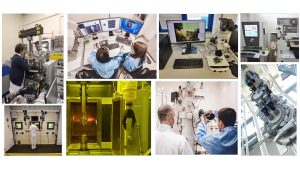
Non-destructive techniques development within the DELISA-LTO
The DELISA-LTO project prioritises the development of Non-Destructive Testing (NDT) techniques, which are essential for routine maintenance and ensuring materials remain within safety limits during LTO. Various NDT methods are being refined to monitor NPP components and detect early signs of degradation. Eddy Current Testing is used to detect surface and near-surface defects in conductive materials, while Ultrasonic Testing employs high-frequency sound waves to assess thickness and locate subsurface flaws. Positron Annihilation Spectroscopy is also being developed to analyse microstructural changes sensitive to voids and atomic-level defects.
In VVER-1000 reactors, specialised tools such as Bobbin Probes and Motorised Rotating Pancake Coils are being improved to inspect Steam Generator Tubes and Core Baffles, particularly in areas vulnerable to swelling and distortion. These tools provide real-time data on component thickness and integrity, supporting informed maintenance and repair decisions.
Data from NDT measurements, combined with Finite Element Modelling, can be used to develop and validate predictive models of material behaviour, ensuring ongoing reactor safety.
Conclusion
The DELISA-LTO project offers a comprehensive approach to managing the Long-Term Operation of VVER reactors. It supports the safe operation of the critical components during extended lifetime by integrating experimental work, Finite Element modelling, and developing Non-Destructive Testing techniques. As VVER reactors continue to operate beyond their original design lifetimes, the DELISA-LTO project plays a vital role in maintaining their safety and reliability. By addressing challenges related to swelling, thermal ageing, and material degradation, the project significantly contributes to the long-term sustainability of nuclear power in Europe.
References
- V Slugen et al., Positron Annihilation Study of RPV Steels Loaded by Hydrogen Ion Implantation Materials 15 (2022) 7091. https://doi.org/10.3390/ma15207091
- Srba, Long-term operation (LTO) current research directions, Presentation at 8th International Conference VVER 202, Session 4: LTO and maintenance, R&D, Řež Czech Republic, 10th 11th October 2022.
- Shugailo et at., Regulatory Approaches, Current Practices and Experience in Reactors Internals Swelling Evaluation in the Framework of the DELISA-LTO Project. In Nuclear and radiation safety No. 3 (2024) 103. https://doi.org/10.32918/nrs
Please note, this article will also appear in the 20th edition of our quarterly publication.

